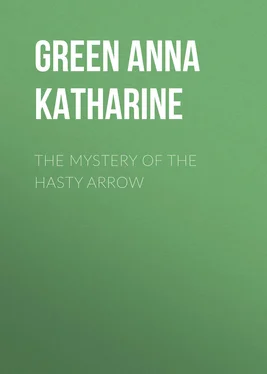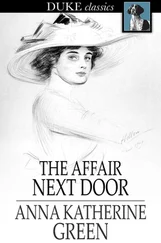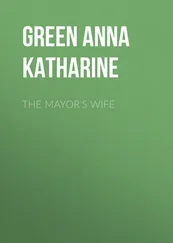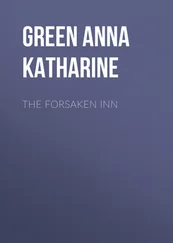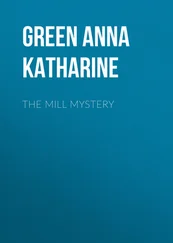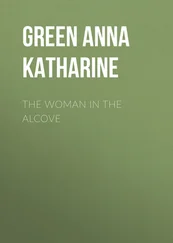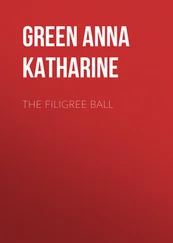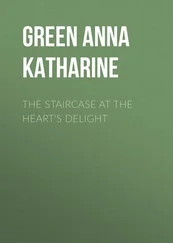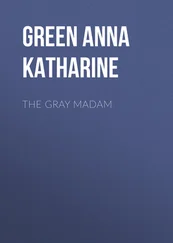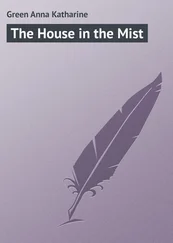Anna Green - The Mystery of the Hasty Arrow
Здесь есть возможность читать онлайн «Anna Green - The Mystery of the Hasty Arrow» — ознакомительный отрывок электронной книги совершенно бесплатно, а после прочтения отрывка купить полную версию. В некоторых случаях можно слушать аудио, скачать через торрент в формате fb2 и присутствует краткое содержание. Жанр: foreign_prose, Классический детектив, foreign_detective, foreign_antique, на английском языке. Описание произведения, (предисловие) а так же отзывы посетителей доступны на портале библиотеки ЛибКат.
- Название:The Mystery of the Hasty Arrow
- Автор:
- Жанр:
- Год:неизвестен
- ISBN:нет данных
- Рейтинг книги:4 / 5. Голосов: 1
-
Избранное:Добавить в избранное
- Отзывы:
-
Ваша оценка:
- 80
- 1
- 2
- 3
- 4
- 5
The Mystery of the Hasty Arrow: краткое содержание, описание и аннотация
Предлагаем к чтению аннотацию, описание, краткое содержание или предисловие (зависит от того, что написал сам автор книги «The Mystery of the Hasty Arrow»). Если вы не нашли необходимую информацию о книге — напишите в комментариях, мы постараемся отыскать её.
The Mystery of the Hasty Arrow — читать онлайн ознакомительный отрывок
Ниже представлен текст книги, разбитый по страницам. Система сохранения места последней прочитанной страницы, позволяет с удобством читать онлайн бесплатно книгу «The Mystery of the Hasty Arrow», без необходимости каждый раз заново искать на чём Вы остановились. Поставьте закладку, и сможете в любой момент перейти на страницу, на которой закончили чтение.
Интервал:
Закладка:
Anna Katharine Green
The Mystery of the Hasty Arrow
BOOK I
A PROBLEM OF THE FIRST ORDER
I
"LET SOME ONE SPEAK!"
The hour of noon had just struck, and the few visitors still lingering among the curiosities of the great museum were suddenly startled by the sight of one of the attendants running down the broad, central staircase, loudly shouting:
"Close the doors! Let no one out! An accident has occurred, and nobody's to leave the building."
There was but one person near either of the doors, and as he chanced to be a man closely connected with the museum,—being, in fact, one of its most active directors,—he immediately turned about and in obedience to a gesture made by the attendant, ran up the marble steps, followed by some dozen others.
At the top they all turned, as by common consent, toward the left-hand gallery, where in the section marked II, a tableau greeted them which few of them will ever forget.
I say "tableau" because the few persons concerned in it stood as in a picture, absolutely motionless and silent as the dead. Sense, if not feeling, was benumbed in them all, as in another moment it was benumbed in the breasts of these new arrivals. Tragedy was there in its most terrible, its most pathetic, aspect. The pathos was given by the victim,—a young and pretty girl lying face upward on the tessellated floor with an arrow in her breast and death stamped unmistakably on every feature,—the terror by the look and attitude of the woman they saw kneeling over her—a remarkable woman, no longer young, but of a presence to hold the attention, even if the circumstances had been of a far less tragic nature. Her hand was on the arrow but she had made no movement to withdraw it, and her eyes, fixed upon space, showed depths of horror hardly to be explained even by the suddenness and startling character of the untoward fatality of which she had just been made the unhappy witness.
The director, whose name was Roberts, thought as he paused on the edge of the crowd that he had never seen a countenance upon which woe had stamped so deep a mark; and greatly moved by it, he was about to seek some explanation of a scene to which appearances gave so little clue, when the tall but stooping figure of the Curator entered, and he found himself relieved from a task whose seriousness he had no difficulty in measuring.
To those who knew William Jewett well, it was evident that he had been called from some task which still occupied his thoughts and for the moment somewhat bewildered his understanding. But as he was a conscientious man and quite capable of taking the lead when once roused to the exigencies of an occasion, Mr. Roberts felt a certain interest in watching the slow awakening of this self-absorbed man to the awful circumstances which in one instant had clouded the museum in an atmosphere of mysterious horror.
When the full realization came,—which was not till a way had been made for him to the side of the stricken woman crouching over the dead child,—the energy which transformed his countenance and gave character to his usually bent and inconspicuous figure was all if not more than the anxious director expected.
Finding that his attempts to meet the older woman's eye only prolonged the suspense, the Curator addressed her quietly, and in sympathetic tones inquired whose child this was and how so dreadful a thing had happened.
She did not answer. She did not even look his way. With a rapid glance into the faces about him, ending in one of deep compassion directed toward herself, he repeated his question.
Still no response—still that heavy silence, that absolute immobility of face and limb. If her faculty of hearing was dulled, possibly she would yield to that of touch. Stooping, he laid his hand on her arm.
This roused her. Slowly her eyes lost their fixed stare and took on a more human light. A shudder shook her frame, and gazing down into the countenance of the young girl lying at her feet, she broke into moans of such fathomless despair as wrung the hearts of all about her.
It was a scene to test the nerve of any man. To one of the Curator's sympathetic temperament it was well-nigh unendurable. Turning to those nearest, he begged for an explanation of what they saw before them:
"Some one here must be able to tell me. Let that some one speak."
At this the quietest and least conspicuous person present, a young man heavily spectacled and of student-like appearance, advanced a step and said:
"I was the first person to come in here after this poor young lady fell. I was looking at coins just beyond the partition there, when I heard a gasping cry. I had not heard her fall—I fear I was very much preoccupied in my search for an especial coin I had been told I should find here—but I did hear the cry she gave, and startled by the sound, left the section where I was and entered this one, only to see just what you are seeing now."
The Curator pointed at the two women.
"This? The one woman kneeling over the other with her hand on the arrow?"
"Yes, sir."
A change took place in the Curator's expression. Involuntarily his eyes rose to the walls hung closely with Indian relics, among which was a quiver in which all could see arrows similar to the one now in the breast of the young girl lying dead before them.
"This woman must be made to speak," he said in answer to the low murmur which followed this discovery. "If there is a doctor present–"
Waiting, but receiving no response, he withdrew his hand from the woman's arm and laid it on the arrow.
This roused her completely. Loosing her own grasp upon the shaft, she cried, with sudden realization of the people pressing about her:
"I could not draw it. That causes death, they say. Wait! she may still be alive. She may have a word to speak."
She was bending to listen. It was hardly a favorable moment for further questioning, but the Curator in his anxiety could not refrain from saying:
"Who is she? What is her name and what is yours?"
"Her name?" repeated the woman, rising to face him again. "How should I know? I was passing through this gallery and had just stopped to take a look into the court when this young girl bounded by me from behind and flinging up her arms, fell with a deep sigh to the floor. I saw an arrow in her breast, and–"
Emotion choked her, and when some one asked if the girl was a stranger to her, she simply bowed her head; then, letting her gaze pass from face to face till it had completed the circle of those about her, she said in her former mechanical way:
"My name is Ermentrude Taylor. I came to look at the bronzes. I should like to go now."
But the crowd which had formed about her was too compact to allow her to pass. Besides, the director, Mr. Roberts, had something to say first. Working his way forward, he waited till he had attracted her attention and then remarked in his most considerate manner:
"You will pardon these importunities, Mrs. Taylor. I am a director of this museum, and if Mr. Jewett will excuse me,"—here he bowed to the Curator,—"I should like to inquire from what direction the arrow came which ended this young girl's life?"
For a moment she stood aghast, fixing him with her eye as though to ask whither this inquiry tended. Then with an air of intention which was not without some strange element of fear, she allowed her glance to travel across the court till it rested upon the row of connected arches facing them from the opposite gallery.
"Ah," said he, putting her look into words, "you think the arrow came from the other side of the building. Did you see anyone over there,—in the gallery, I mean,—at or before the instant of this young girl's fall?"
She shook her head.
Читать дальшеИнтервал:
Закладка:
Похожие книги на «The Mystery of the Hasty Arrow»
Представляем Вашему вниманию похожие книги на «The Mystery of the Hasty Arrow» списком для выбора. Мы отобрали схожую по названию и смыслу литературу в надежде предоставить читателям больше вариантов отыскать новые, интересные, ещё непрочитанные произведения.
Обсуждение, отзывы о книге «The Mystery of the Hasty Arrow» и просто собственные мнения читателей. Оставьте ваши комментарии, напишите, что Вы думаете о произведении, его смысле или главных героях. Укажите что конкретно понравилось, а что нет, и почему Вы так считаете.
